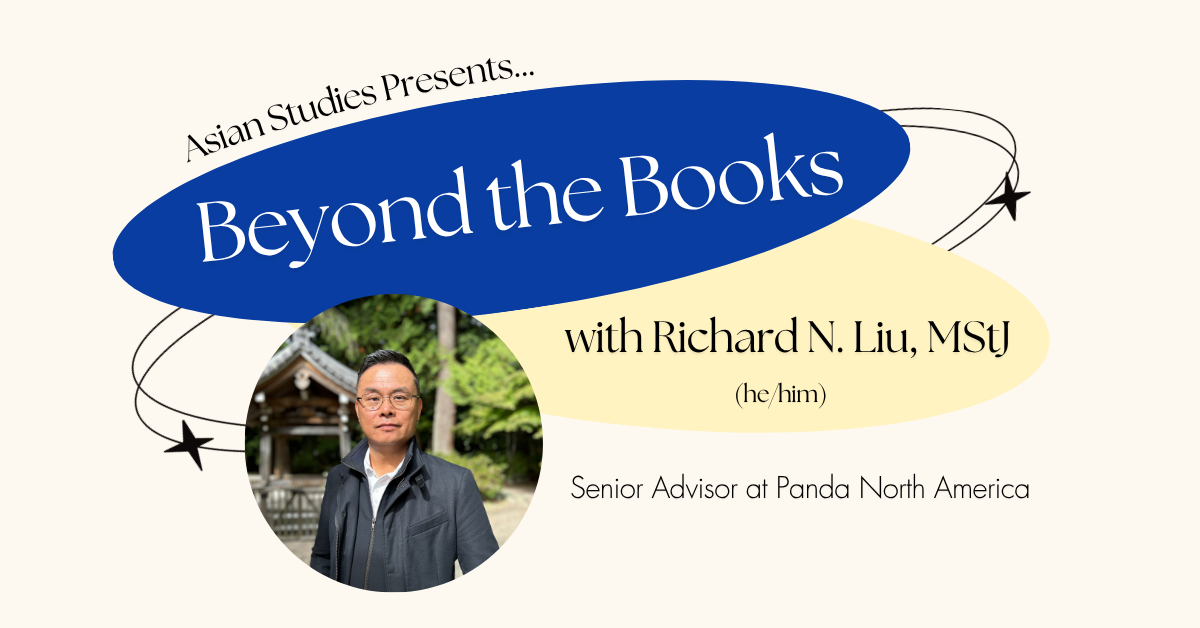Interested in what you can do with a degree in Asian Studies? In our Alumni Spotlight Interview Series, we ask our alumni about their career paths, how they became interested in Asian Studies and for any advice they would give to current students. This Interview features Dean Robinson UBC Asian Studies BA 1999. Robinson is currently a Private Equity Professional living in Hong Kong.
![Dean-Robinson[1]](https://asia.ubc.ca/wp-content/uploads/sites/18/2013/03/Dean-Robinson1.jpg)
![Dean-Robinson[1]](https://asia.ubc.ca/wp-content/uploads/sites/18/2013/03/Dean-Robinson1.jpg)
Who are you and what are you currently doing?
My name is Dean Robinson. Originally from Alberta, I completed my undergrad degree at UBC with a major in East Asian Studies and a minor in International Relations (graduated in 1999). Subsequently I earned an MBA in Tokyo via McGill University. I have spent around 15 years in Asia (Beijing, Hong Kong, Taipei and Tokyo) and am currently living in Hong Kong, working for a private equity fund established by the Chinese government.
How did you start working abroad?
Half way through my undergraduate studies, I decided to move to China to better learn Mandarin. (I found that learning languages outside the natural environment is an exercise of futility). I spent a year studying full-time in Beijing after which I worked with a friend who was setting up a chain of cafés in the city. This was my first work experience in China. At the end of my second year in China, I returned to Canada and finished my undergraduate studies at UBC. At the time, I was keen to get back to Asia, so I loaded up on courses, getting approval to take 150% of a regular course load. Then, a week after my last class at UBC, I was back on a plane as the Chinese government had awarded me a full scholarship to study a second year in Beijing. As a self-funded student, I was very fortunate to have this opportunity. Beyond this, throughout my time in the region, I have found that a solid personal network is very, very valuable. This goes beyond having some great drinking buddies, as it has been very important also to develop a wide range of professional relationships.
How is working and living abroad as a foreigner?
Working and living abroad can be very rewarding. While Canada is definitely one of the greatest countries on the planet, having experience, even bad experience, living in other countries is very valuable. It can help a person grow as an individual and better understand themselves as well as better understand Canada. From a career standpoint, living overseas can also offer opportunities that are not available in Canada. If someone is interested in working on an international platform, the opportunities in Canada can be rather limited. Global firms may not have a significant presence in many of Canada’s cities, whereas the economic growth in East Asia has required most global firms to focus a lot of energy in the region. A few years after graduation, I found myself negotiating a joint venture agreement in Nigeria for a blue-chip company from Hong Kong. I am not sure I would have had such exposure if I had stayed in Canada.
On the downside, living abroad means living far from one’s family and existing friends. Despite the ease of connectivity with Skype, Facebook, etc, this can still be challenging for both the person living abroad and those back home. Most expats I know will typically need to return ‘home’ at least once a year. Beyond this, a common experience for people is to have an exciting honeymoon period soon after they move abroad. During this period, even things which might be considered annoying, are viewed as exciting and fresh. Once a person is in this new environment for a few months, this ‘glow’ can wear off. If a person can get beyond this, they need to be prepared for good days and bad days. Rather than completely retreating into a bubble of expat existence, a person should try to integrate as best as they can with their new home. Equally important, many people can get quite frustrated by asking “why don’t they do this like they do it back in Canada?” It is important to remember what might be common sense back home is not so common abroad.
Any Advice for other alumni that are hoping to go abroad?
To borrow from the shoe company: Just do it! Decide where you want to go; read up as much as you can before you leave, and then do it. With all the resources on the internet, a person can find out quite a bit of information about where they are heading. They can reach out to both professional organizations (alumni associations, chamber of commerce, LinkedIn, etc.) and recreational groups (Facebook, sporting groups, etc). Do your homework before you leave, but also be prepared to challenge any preconceptions you might have, particularly in a region such as Asia which is highly dynamic and in constant change.
Can you recommend your favorite location in your region?
In terms of recommended locations, my work is focused on the ASEAN bloc of countries, so although I am a bit bias, I think this is a very interesting region which is increasingly gaining attention.
What is one of your funniest or awkward mistakes as a foreigner?
I could write a book on the unique experiences I have had living abroad, but it would probably preclude me from ever taking public office. From eating crickets and cows armpit, to language slip-ups and cultural faux pas, this is part of the excitement of living abroad.


